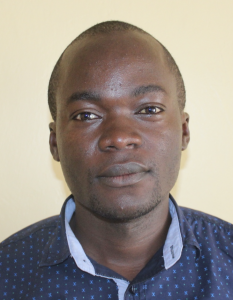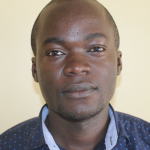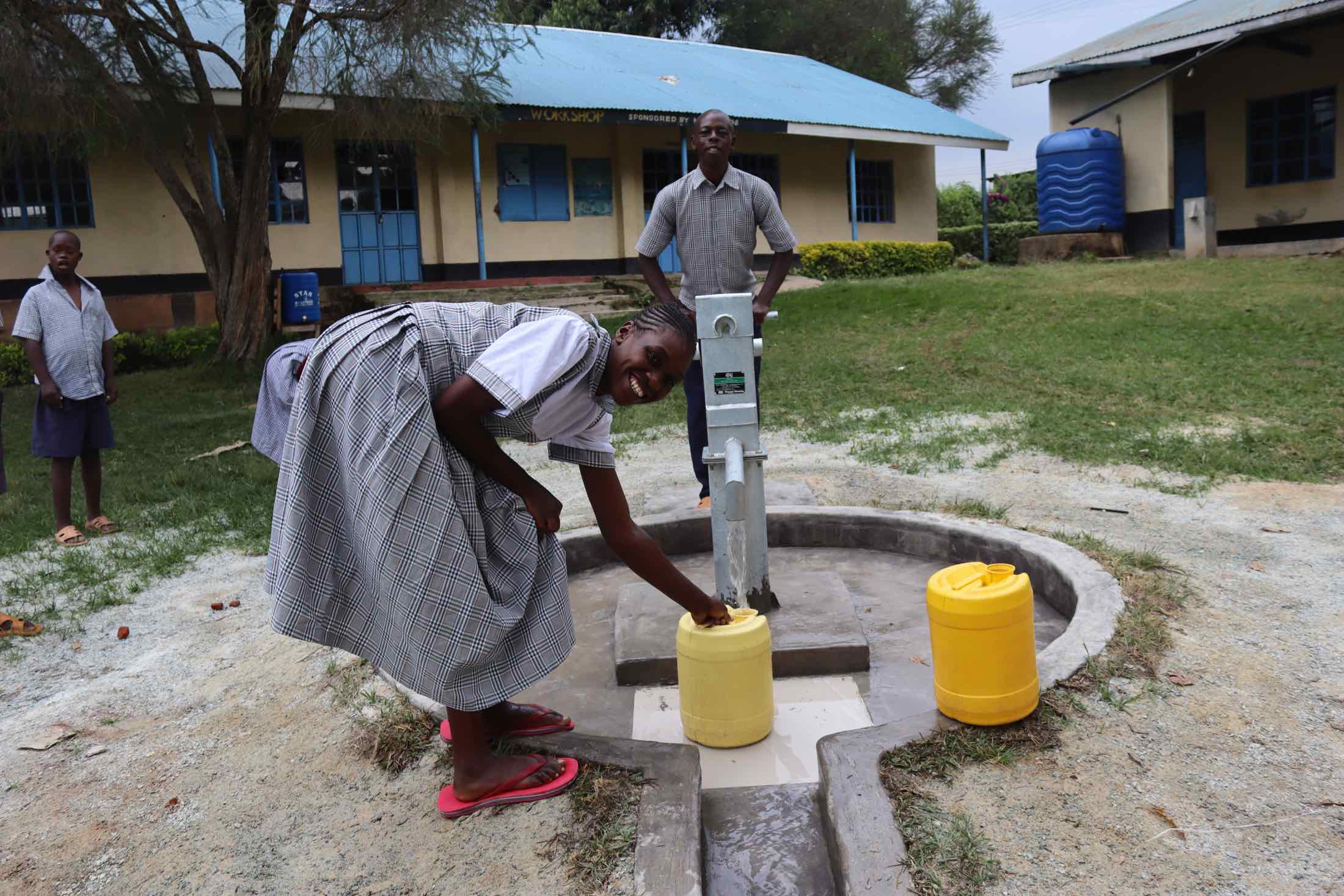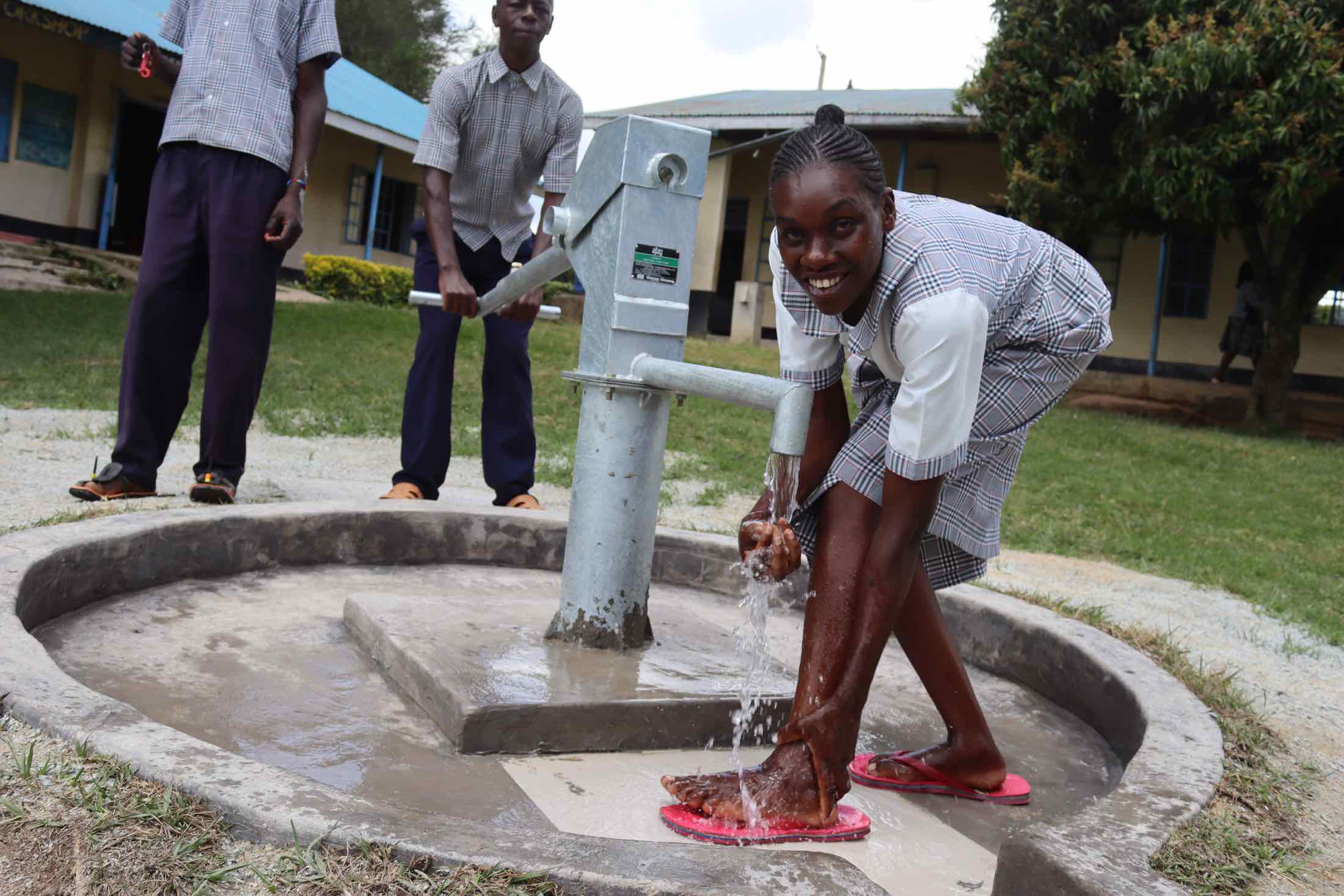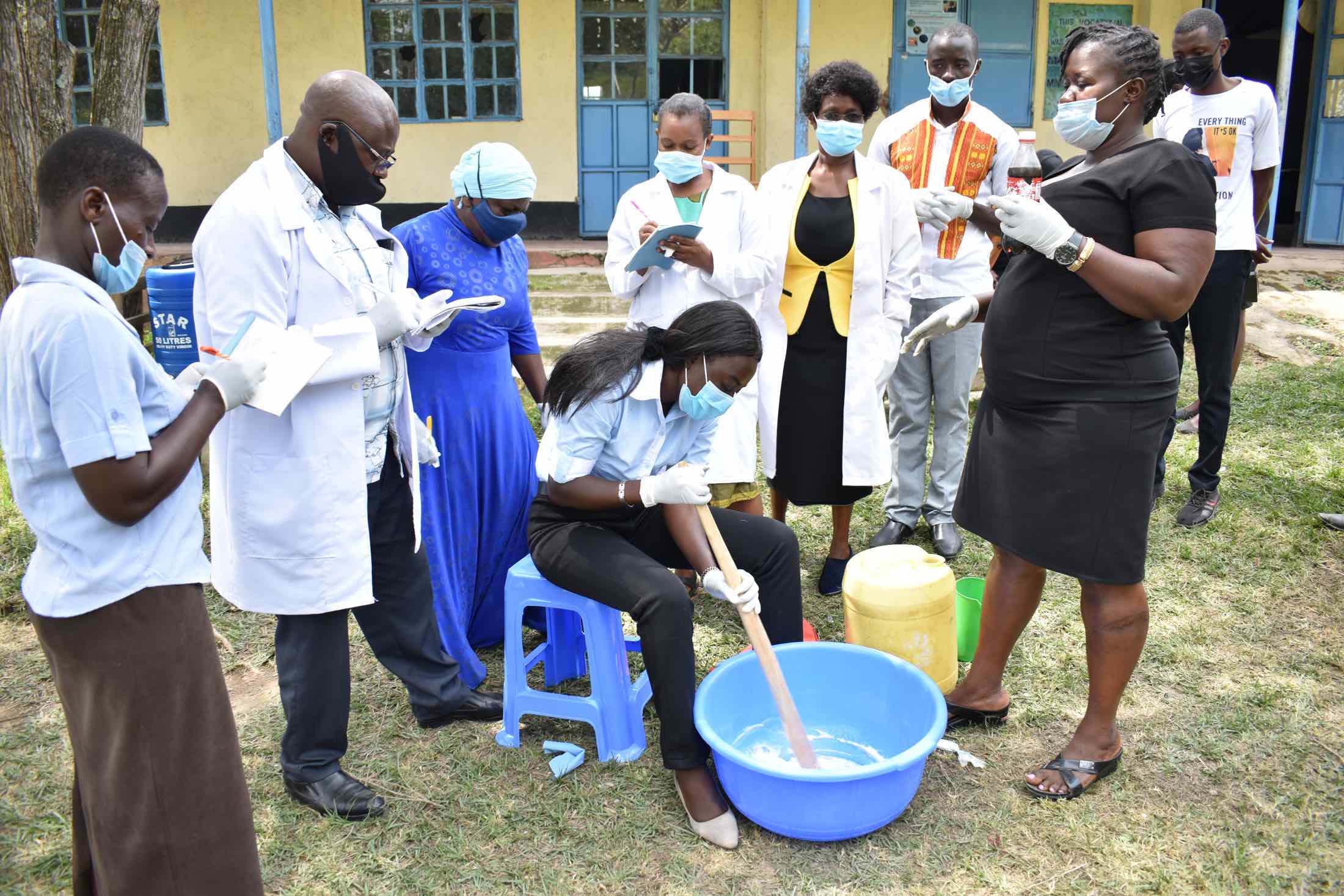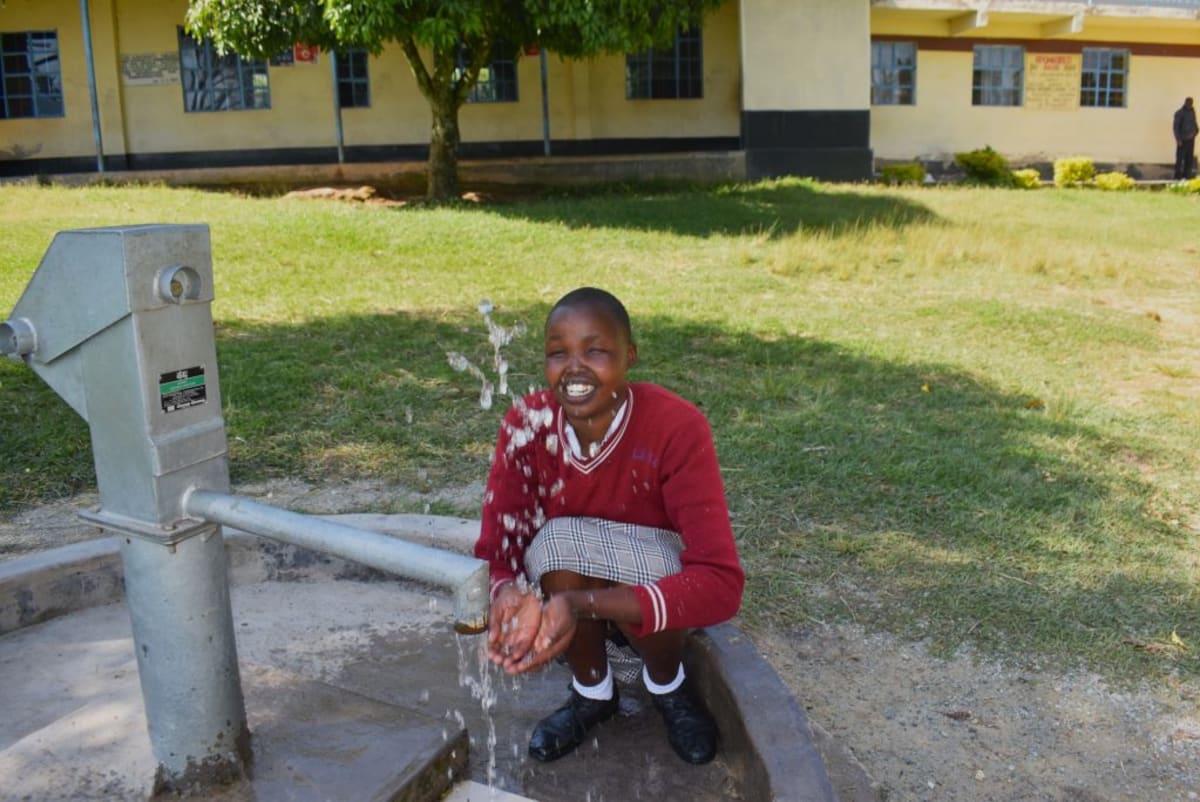"Life has not been good since I joined this school," said John, a pupil at Friends Kaimosi Special Primary School.
"Challenges have occurred, weakening my ability to concentrate on my studies as I spend more time on collecting water due to its daily needs. Good hygiene practices cannot be achieved using unsafe water, thus giving me a hard time as I have to reuse my school uniform. Even bathing is not done daily."
"Due to the frequent consumption of unclean water, we regularly take pupils to health facilities who have contracted waterborne diseases because their immune system has been weakened over time," added Principal Florence Ondari.
John and Principal Ondari represent the daily challenges each of the 297 students and 32 teachers and staff at Friends Kaimosi Special Primary School face due to their severe clean water shortage.
Established in 1998 under the Friends Quaker Church's sponsorship, the school is proudly known for empowering pupils with education and co-curricular activities. But the school has always struggled to provide enough clean and safe water for students.
To date, there is just one small plastic rain tank that is meant to serve the entire school's drinking, cooking, and cleaning needs. As an all-boarding school, the school's water needs are particularly high as students require all of their meals, showers, and laundry to come from the school.
The school relies on sending students and staff to a protected spring in the village to fetch additional water for school use. But not all students are physically able to access the spring, and many cannot be sent without staff to assist and supervise them. That means the same few students and staff are repeatedly sent to the spring, taking away a lot of their class time and time for other activities. This negatively impacts students' academic performance and drags morale down.
The jerrycans students use to ferry water are very dirty, and sometimes water is mishandled on the walk back to class, contaminating it. Students report cases of typhoid and cholera, requiring their parents to pay for their medical treatment. Economically, most of the students' parents are low-income earners and have little money to spare. Their children's water-related illnesses at school are draining their financial resources.
Without sufficient water, basic hygiene and sanitation practices have to be sacrificed. As John mentioned, laundry and bathing are not guaranteed, along with handwashing and cleaning the latrines. The students are living in unnecessary discomfort and unhealthy conditions due to their school's lack of water.
What We Can Do:
New Well
We conducted a hydrogeological survey at this school, and the results indicated the water table beneath it is an ideal candidate for a borehole well. Due to a borehole well's unique ability to tap into a safe, year-round water column, it will be poised to serve all of the water needs for this school's large boarding population, even through the dry months.
The school will help collect the needed construction materials such as sand, rocks, and water for mixing cement. They will also provide housing and meals for the work team, in addition to providing local laborers. We will complement their materials by providing an expert team of artisans and drilling professionals, tools, hardware, and the hand-pump. Once finished, the school’s students and staff will use water from the well and staff for drinking, handwashing, cooking, cleaning, and much more.
The school and we strongly believe that all of these components will work together to improve standards at this school, which will help lead to better student academic performance and unlock the opportunity for these students to live better, healthier lives.
Handwashing Stations
The student health club will oversee the two new handwashing stations we will provide and ensure they are kept clean and in working condition. The club leaders will fill the handwashing stations with water daily and make sure they are always supplied with a cleaning agent such as soap or ash.
VIP Latrines
Two triple-door latrine blocks will be constructed with local materials that the school will help gather. Three doors will serve the girls, and three doors will serve the boys. These new latrines will have cement floors designed to be easy to use and clean. And with a rain tank right on school property, there should be enough water to keep them clean.
Training on Health, Hygiene, COVID-19, and More
We will hold a one-day intensive training session with students, teachers, and parents. This training will cover a wide range of topics, including COVID-19 symptoms, transmission routes, prevention; personal and environmental hygiene; and the operation and maintenance of the rain tank, latrines, and handwashing stations. There will be a special emphasis on handwashing.
Our team of facilitators will use various methods to train, including participatory hygiene and sanitation transformation and asset-based community development. We will initiate a student health club, which will prepare students to lead other pupils into healthy habits at school and home. We will also lead lectures, group discussions and provide illustrative handouts to teach health topics and promote good hygiene practices within the school, including handwashing and water treatment. We will then conduct a series of follow-up training before transitioning to our regularly scheduled support visits throughout the year.

 Borehole Well and Hand Pump
Borehole Well and Hand Pump
 Rehabilitation Project
Rehabilitation Project












